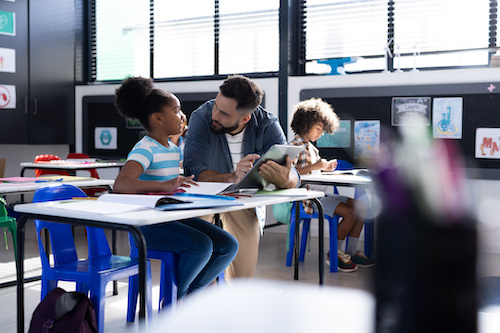Key points:
- The pandemic is over, but reading and math skills need a boost from the right edtech tools
- See article: PBL isn’t used enough–let’s change that
- See article: Excite, expand, equitize: Using data to support reading
- For more news on edtech tools, visit eSN’s Innovative Teaching site
Back in early 2020, educators and students nationwide were living in a fast-paced world full of choices, adjustments, and constant changes. But in March of that year, everything changed. Our district, like so many across the country, was forced to re-imagine what learning looked like. Under the great leadership of Dr. Shawn Foster, the Orangeburg County School District Superintendent, my school district had an active plan of action to ensure continuity of learning for all students.
While we move further away from day-to-day impacts of the COVID pandemic, in some ways it is still with us. Although all members of the team worked hard to maintain continuity of learning during the pandemic, COVID has left our students’ reading and math skills in a state of emergency. Today, our challenge is to empower, encourage, equip, and support our teachers and students as they recover the learning lost during the pandemic.
To support the success of all students in the post pandemic world and to address the state of emergency in our students’ reading and math skills, our district has reviewed its edtech resources. We’ve decided to keep those that are proven effective in helping our students regain lost learning. Here are the tools we kept:
Waterford.org provides parents and educators with a variety of resources supporting young learners. From its powerful PK-2 early literacy curriculum to its math literacy tools to their many professional learning opportunities, Waterford.org offers helps teachers and parents’ partner on supporting the developing literacy and math skills of elementary school students.
Through the South Carolina Department of Education’s Instructional Hub, my school system and school systems across the state have no-cost access to Discovery Education Experience. The wide array of digital resources now available to me help me better differentiate instruction and provide learners of all levels the appropriate resources for improving their math and literacy scores. The high-quality resources offered by Discovery Education also nurture my students’ natural curiosity, making it the perfect tool for improving student engagement.
Eureka Math is also an important component in our efforts to boost student success in math. It features a spiraled curriculum that builds upon each lesson daily. As Eureka Math focuses on key concepts that layer over time, students gain an enduring body of math knowledge, not just a discrete set of skills. Plus, because students use the same models and problem-solving methods from grade to grade, math concepts stay with them, year after year.
Alongside Eureka Math, we use i-Ready. A connected system of assessments and learning resources, i-Ready provides educators like me not only a deeper understand of what my students know and do not know, but also a host of resources that help me remediate where needed and provide student enrich for students operating above grade level.
To provide teachers even more insight into our students’ understanding of core concepts, my school system is now combining i-Ready and Mastery Connect to implement mini-assessments that allow us to target support in identified areas even faster than before. The insights gleaned from these mini assessments help identify areas needing additional help very quickly, allowing me to adjust teaching and provide students more individual support.
Augmenting all these resources are resources from a number of nonprofit providers, such as the Save the Children Foundation and the 21st Century After School Program. This content provides after-school caregivers with additional tools to help students continue learning after the last bell.
As much as we’d like to think we’ve moved on from the COVID pandemic, the fact is that we will be grappling with its aftermath for a long time. Thankfully, the district I am proud to serve in—Orangeburg School District in South Carolina—is dedicated to ensuring all students discover and develop their person, purpose, and platform through high-quality educational experiences. They are putting their money where their mouth is by making sure educators have the tools needed to overcome our current state of emergency. I believe these resources, when in the hands of my innovative colleagues, will get the job done!
- 4 ways to encourage play in education - April 25, 2024
- CoSN IT Leader Spotlight: Lisa Higgins - April 25, 2024
- It’s time to pay student teachers - April 25, 2024

